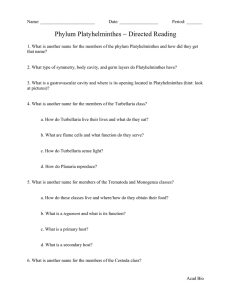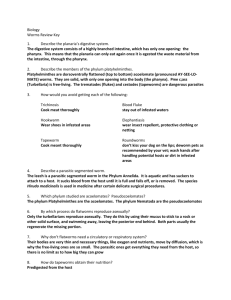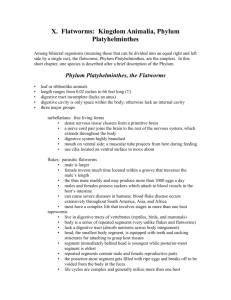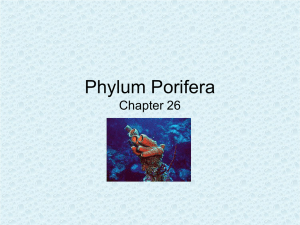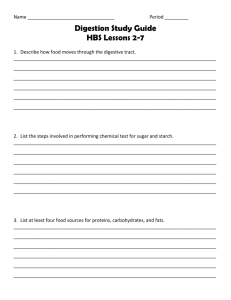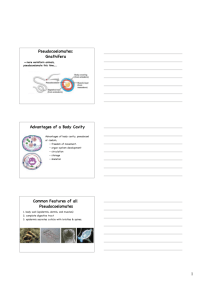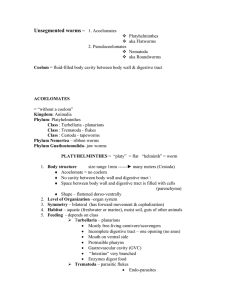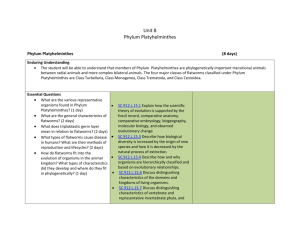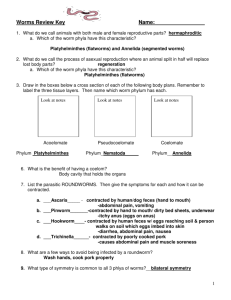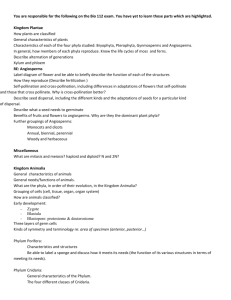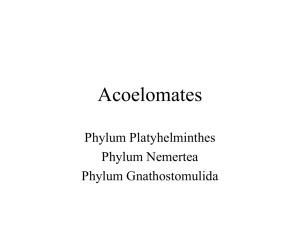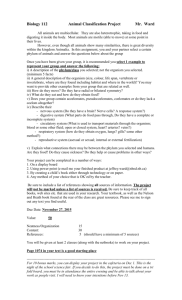Click this Button for our printable worksheet to this page!
advertisement
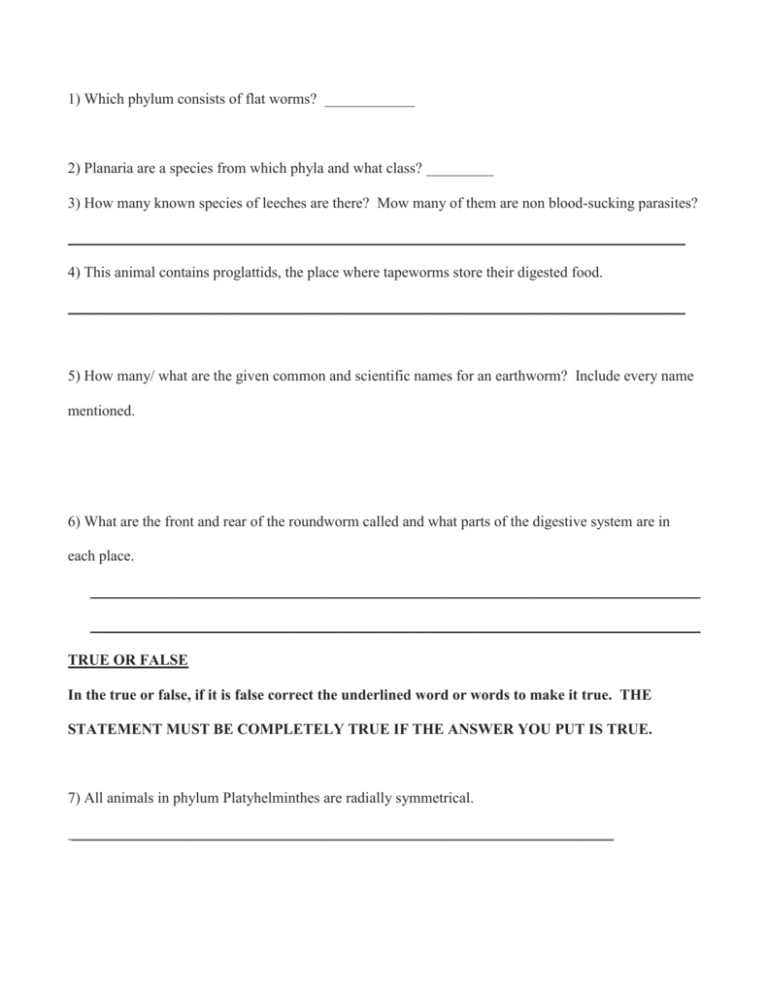
1) Which phylum consists of flat worms? ____________ 2) Planaria are a species from which phyla and what class? _________ 3) How many known species of leeches are there? Mow many of them are non blood-sucking parasites? __________________________________________________________________________________ 4) This animal contains proglattids, the place where tapeworms store their digested food. __________________________________________________________________________________ 5) How many/ what are the given common and scientific names for an earthworm? Include every name mentioned. 6) What are the front and rear of the roundworm called and what parts of the digestive system are in each place. _________________________________________________________________________________ _________________________________________________________________________________ TRUE OR FALSE In the true or false, if it is false correct the underlined word or words to make it true. THE STATEMENT MUST BE COMPLETELY TRUE IF THE ANSWER YOU PUT IS TRUE. 7) All animals in phylum Platyhelminthes are radially symmetrical. ________________________________________________________________________ 8) Platyhelminthes have their mouth on/in the underside of their body. _________________________ 9) When exposing their waste, Platyhelminthes dispose of their food through their anus at the end of the body. _____________________________________ 10) Explain the possible ways and steps there is/are to have human roundworms get into the intestines. 11) ____________ in the phylum__________ live off of organic matter in the soil. 12) Explain the digestive system of a Platyhelminthes. Make sure to include what is unique about this specific digestive system. _________________________________________________________________________________ _________________________________________________________________________________ _________________________________________________________________________________ _________________________________________________________________________________ 13) What do ragworms eat and how do they make it possible for the food to get inside their bodies? 14) How much blood can leeches store in their body? Where do they store this blood? Why is it significant that they can do this? _________________________________________________ ___________________________________________________________________________ ___________________________________________________________________________ 15) How do hookworms get their food down through the intestine? _______________________ Matching: Write the correct letter next the clue that matches the given word. ____16) Crop A. Largest part of the digestive ____17) Intestine ____18) Platyhelminthes system in annelids and nematodes B. in roundworms, consists of ____19) Coelom ____20) Earthworm the mouth, pharynx, and esophagus C. Live in fresh or saltwater ____21) Gizzard ____22) Nereididae habitats near the water possibly in the sand D. Where the food is ground ____23) stomodeum ____24) Gastrovascular cavity up and smoothed out E. Storage place before the food moves to the intestine ____25) Anus F. Also known as nightcrawlers with a segmented body G. Last stop in the digestive tract for annelida and nematode H. Fluid filled cavity holding parts of the animal in place I. also known as the intestine in phylum Platyhelminthes J. Mouth and Anus are located in the same place in this Phylum 26) How does the Human esophagus move food to the stomach? 27) What part of the human digestive system churns the food and bathes it in gastric acid? 28) Which species only digests 40% of its intake? 29) What species’ bacteria doesn’t break down food with enzymes, but has bacteria-killing properties? 30) Which phylum includes animals with a notochord? 31) Describe the skin of the common star fish. 32) How does the sea urchin get its food, such as algae? 33) What are the four characteristics that characterize Echinoderms? 34) What are some examples of a Monarch Butterfly’s diet? 35) True or False? Butterflies have teeth. _________ Explain if false. 36) How is the stomach of the crab unique? 37) True or False? Black Widow’s venom kill humans most of the time. Explain if false. 38) How does the Black Widow digest its prey? 39) Ninety percent of arthropods are _______________. 40) The ______________ has a relatively small mouth for the size of their body. 41) Why cant dogs be vegetarians or eat too many grains? 42) How can Homo sapiens be characterized? 43) True or False? It is possible for sea stars to regenerate their entire body. Explain if false. 44) Which species is called the “sea hedgehog”? 45) What phylum is both the largest in individuals and animals? 46) What are mollusks protected by? 47) List the 7 parts of an Oyster Mussels digestive system. 48) What Mollusk species are endangered? 49) What is the most valuable shellfish? 50) What are the three layers of a Clams shell? 51) What does a slug do when in danger? 52) What breaks down food in a slug and where does waste leave the slugs body? 53) How many different species of sponges are there and where are they found? 54) Why cant sponges persue their food? 55) How large is your average Sycon? 56) What is the scientific name of a Common Sea Squirt? 57) Why can Sea Squirts be different in size and shape? 58) How many speices of Jellyfish are there and when were they found? 59) Describe how the Hydra Coral intakes food. 60) What is the flower of the sea?
